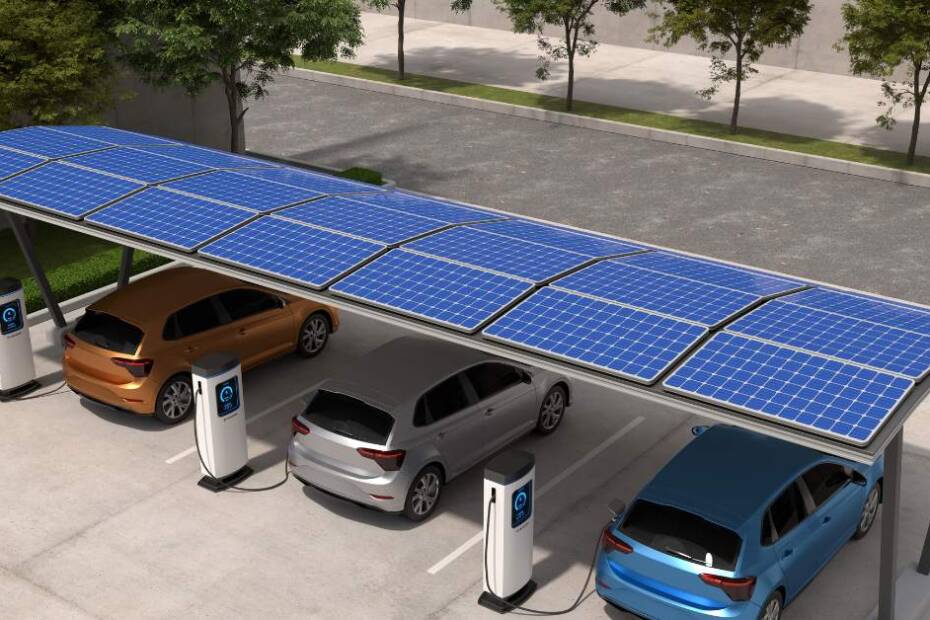Amidst the exponential rise of the EV ecosystem in India, the availability of grid power could be a major factor hindering the growth. According to experts at think tanks, India would require an additional 170-240 TWh of power per year to meet the growing demand.
However, a robust and accessible home charging ecosystem with rooftop solar has the potential to significantly reduce pressure on the grids and make EVs eco-friendly in a real sense. Utilization of vastly available renewable sources of energy such as the sun to charge EVs could be a game changer in India.
A typical rooftop solar system in India with a power capacity of 4-6 kW can generate 4,000-6,000 units of electricity per year. This is enough to meet the daily charging needs of an Indian electric car with a moderate battery size of around 30 kWh.
The financial benefits of owning and driving an EV can be drastically improved by installing a solar rooftop at home for charging EVs. The average cost of charging an EV at home with rooftop solar is estimated to be around ₹2-₹4 per unit, compared to ₹7-₹8 per unit for home EV charging via grid power.
EV owners having a spacious terrace can benefit from the “PM Surya Ghar Muft Bijli Yojana” by installing solar rooftops at a subsidized rate. The generated electricity can be used for EV charging, powering the home, or can be sold back to the grid via bidirectional EV charging.
According to the World Resources Institute (WRI) suggest that rooftop solar installations can help to manage up to 80% of a household’s electricity consumption. This translates to significant cost savings on electricity bills, especially when used for EV charging.
The Energy Landscape
According to a study by The Energy and Resources Institute (TERI), a leading think tank of the Indian Government, the present rate of EV penetration in India and the projected 30% of new vehicle sales by 2030 would create a high energy demand of 170-240 TWh (Terawatt-hour) of electricity per year.
The Ministry of New and Renewable Energy (MNRE) estimates that India has the potential to generate 450 GW (Gigawatt) of energy from solar in a year. However, India’s installed solar energy capacity stands at 75.57 GW as of Feb 2024, with only a fraction coming from rooftop installations.
Considering the future energy demands, harvesting solar energy to charge EVs at home could potentially save billions in upgrading the nationwide power grid to support the growing EV ecosystem. India holds immense potential for solar energy generation due to its geographical conditions.
Transportation and power generation are major contributors to greenhouse emissions. To combat this, India is betting on electric vehicles (EVs) as an alternative mode of transport and to enhance the climate index. The Indian government is actively promoting EVs with purchase subsidies, tax breaks, and charging infrastructure initiatives for CPOs and EV owners.
The synergy between electric vehicles and rooftop solar power has the potential to accelerate India’s sustainable transportation goals. By addressing challenges like upfront costs, and awareness among EV owners, India can unlock the immense potential of its vastly available solar energy.
